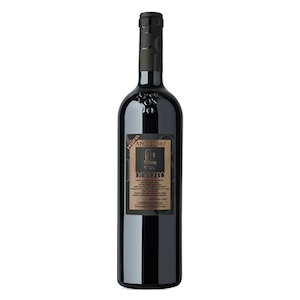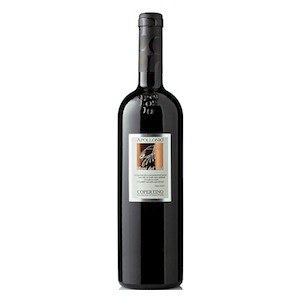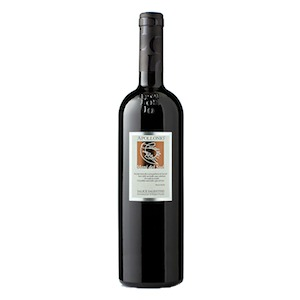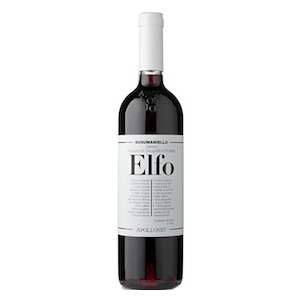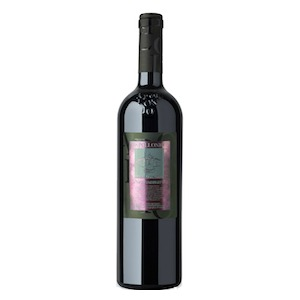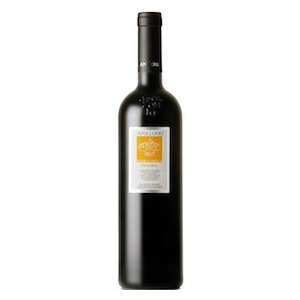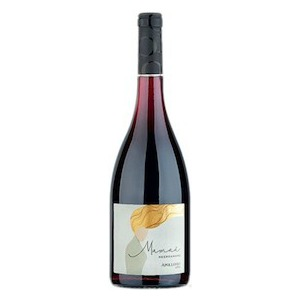
One of the oldest wineries in Italy, Apollonio produces a range of excellent wines from Puglia. While the focus is on the traditional grapes of Salento, the winery is also helping to lead a campaign to showcase Copertino as a premium wine producing appellation.
As one of Italy's officially recognised historical businesses, the Apollonio name is known and respected throughout the country. The family's viticultural legacy can be traced back as far as the beginning of the 19th century. The story's more concrete roots are firmly dated at 1870 however, when in the buoyant aftermath of Italian unification Noè Apollonio took the decision to plant his own vines and, for the first time, make his own wine. It was felt that, amidst the devastating effects of the phylloxera disease, which wiped out great swathes of Europe's vineyards, there were opportunities for those prepared to keep their head up and start again. The Apollonio wine business began. Based in the Salento area of Puglia, Apollonio Vini continues to make high quality wines that would stand up to anything else produced in the region. Massimiliano Apollonio, the latest generation to oversee the family heirloom, now steers the company and its vision for the future. After completing his oenology studies he went on to seek experience in Italy, France and Spain. A former local representative of the Italian ONAV (Organizzazione nazionale assaggiatori vini – ‘National Organization of Wine Tasters’), he is a now regional president of the Assoenologi association for the regions of Puglia, Basilicata and Calabria, and is well placed to handle the company's global network of clients. While Salento and Puglia do not have a long tradition of barrel ageing - hot summers and a lack of money to build temperature controlled cellars meant wine was consumed early - the Apollonio family were early into the use of wood. As Noè's enterprise expanded he travelled further afield in search of both grapes and customers. His son Marcello followed suite, enthusiastically acquiring or renting land throughout Salento, from the Valle della Cupa to the Terre d'Arneo, and as East as neighbouring Basilicata. Merchants in Tuscany, Veneto and Piedmont sought a beaker or two of the warm south to bolster their wines with body, fruit and alcohol. By the time the Second World War came to a close, Marcello was travelling north by car and his wines required the protection of wood for those long, often hot journeys. It's a tradition that Massimiliano and his brother Marcello continue to this day and the wines are known for a full bodied, oak influenced style. Many producers followed the whims of the American palate with their ageing ideas and are now rapidly advocating the use of stainless steel to achieve a cleaner, fresher wine. Yet Apollonio continue their longstanding maturation traditions, and today ages around a million litres a year in (predominantly) French oak. It's a philosophy that inevitably translates into the glass. While the entry level range is lighter, the key wines are rich, fruit driven and designed to amplify the variety to the maximum. Many have tried this approach and few, in Puglia at least, have succeeded. To deliver such intensity while avoiding the loss of acidity, or the accumulation of bitter compounds is a skill. Some of the credit must be given to the Salento area's patchwork of old bush vines which provide fewer berries and more concentrated flavours. Even so, to craft equal levels of power and finesse is impressive. Perhaps the most recent triumph is to be found in the tiny appellation of Copertino. Here, where there are only a handful of producers, a consensus of quality can be agreed upon with the obstacles and lip service of large bottlers that have undermined some of the region's classic regions. Massimiliano's pushy endeavours in the organisation and promotion of Copertino will likely see it granted DOCG status in the near future. To achieve DOCG status (in theory at least) Copertino must presumably demonstrate some form of unique characteristics. In tasting Massimo's 'Mani del Sud' 2015 Coperinto, a blend of 70% Negroamaro, 20% Montepulciano and 10% Malvasia Nera. The 2010 Riserva, a blend of 70% Negroamaro and 30% Montepulciano was simply outstanding. Still young at almost ten years old, it boasted powerful layers of black fruit compote and a treasure chest of Christmas spices and wild herbs. The complexity was as fascinating as the harmony between elegance and impact. I'm told, although have never tasted, that both the 1993 and 1997 vintages are frequently opened to the same acclaim. Although it is still very much in the experimental phase, the introduction of one of Puglia's local white varieties is also of interest. Bianco d'Alessano, an old grape traditionally found around Locorotondo, was more or less abandoned in favour of the more productive Verdeca, which it is now frequently blended with. However wineries are starting to plant it once again. At Apollonio it was first planted in 2012 so it remains early days for the variety. The plants are yet to truly come of age and a process of trial and error learning is underway. Tasting the 2018 'Elfio' (Salento IGP) in the cellar revealed a gentle, sapid nose with some floral and almond notes. In the mouth it lacked a little concentration and fruit but it was after all an entry level expression of the grape - for now at leat. For the international observer, Susumaniello is one of the estate's other curiosities. One of the region's pre-phylloxera vines, Susumaniello, named after the donkeys that carried it from the vineyard, behaves a little bit like Montepulciano and as such is well suited to the production of rosato, keeping its vibrant colour, unlike the local Negroamaro which fades quickly - although there are plenty in Salento, myself included, who celebrate the long tradition of these copper tinged rose wines. The Susumaniello 'Elfio' comes from sandy soils. Puglia is a fascinating region to watch at the moment. There are a number of medium and large scale wineries that started out in life producing bulk wine for low prices. Slowly some of these companies are integrating a much greater emphasis on quality and artisanal production methods and it won't be long before the region sheds some of the prejudice that has hidden aspects of the good work being done here. One thing is for sure, when the attention starts to flow, the Apollonio family will be top of the praise list.
